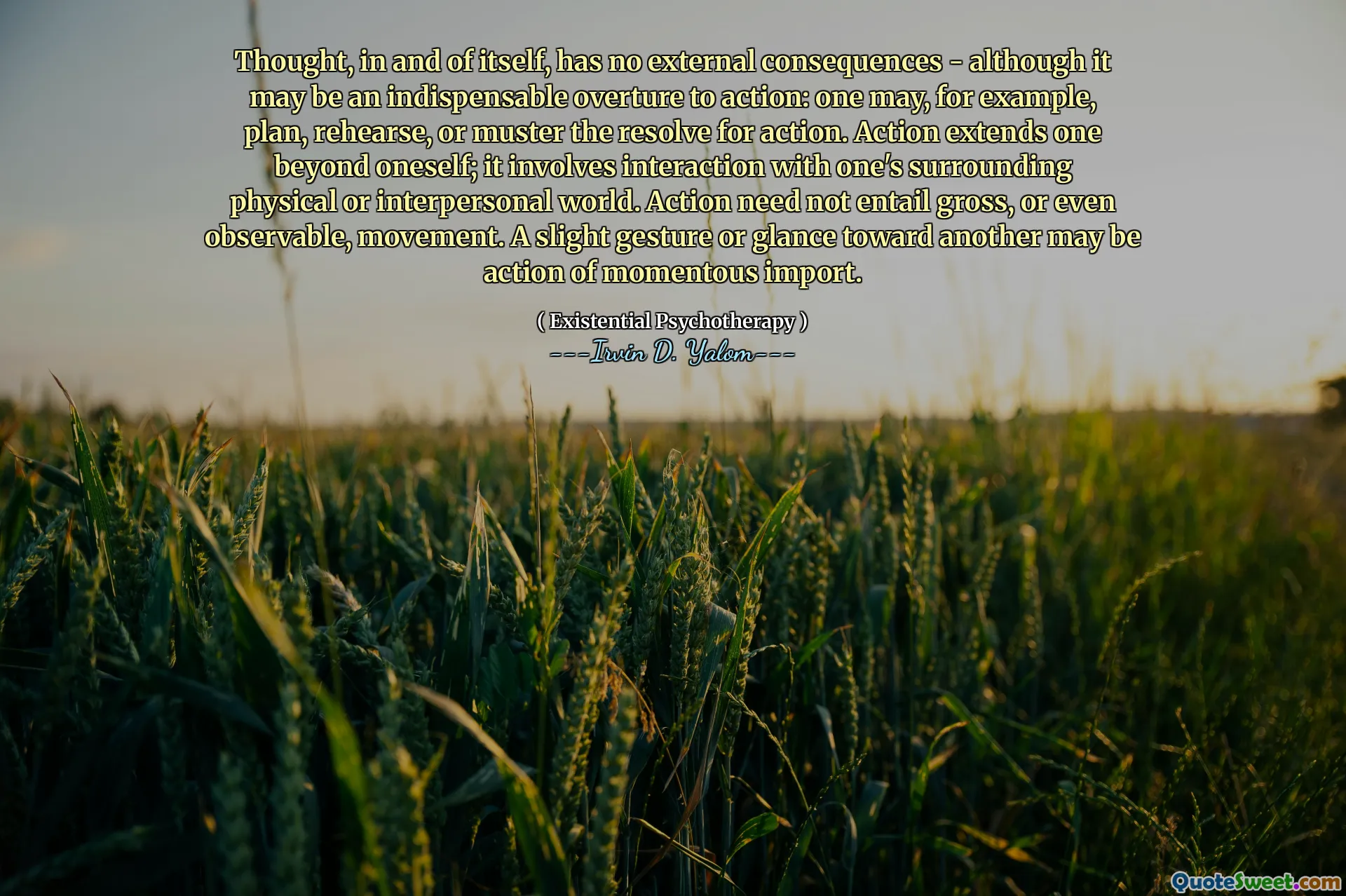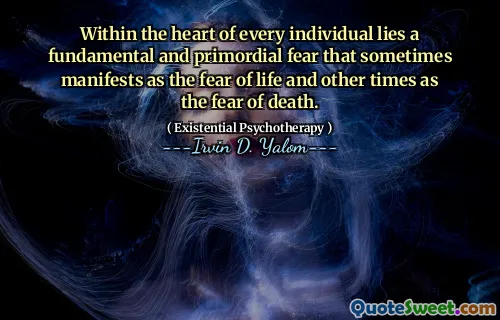
Thought, in and of itself, has no external consequences - although it may be an indispensable overture to action: one may, for example, plan, rehearse, or muster the resolve for action. Action extends one beyond oneself; it involves interaction with one's surrounding physical or interpersonal world. Action need not entail gross, or even observable, movement. A slight gesture or glance toward another may be action of momentous import.
This quote from Irvin D. Yalom's Existential Psychotherapy profoundly underscores the distinction between thought and action, something often taken for granted. It highlights that while thought alone remains an inward process, without direct external impact, it serves as a crucial precursor or invitation to action. Thoughts function as the mental groundwork, the rehearsal space where we prepare, resolve, and envision what might be. Yet, they are incomplete without the leap into acts that engage the world beyond ourselves.
The second part of the quote broadens our conception of "action." Action is not limited to substantial or visible deeds; it extends into the nuanced realm of gestures and nonverbal cues. This insight challenges us to rethink how even subtle behaviors—like a glance or a slight movement—have the ability to shape relationships and influence others significantly. It emphasizes the power of mindful interaction, encouraging us to recognize that our physical and interpersonal environments are continuously impacted by what we choose to do, not merely what we think.
Philosophically and practically, this quote invites reflection on accountability and presence. It suggests that while our inner thought life is private and consequence-free in the material sense, our actions root us in the fabric of shared reality and give our existence tangible meaning. In existential psychotherapy, embracing this interplay between thought and action helps clients realize their power and responsibility to affect their own lives and others' through deliberate choices—reminding us all that even the smallest acts can be laden with significance.








